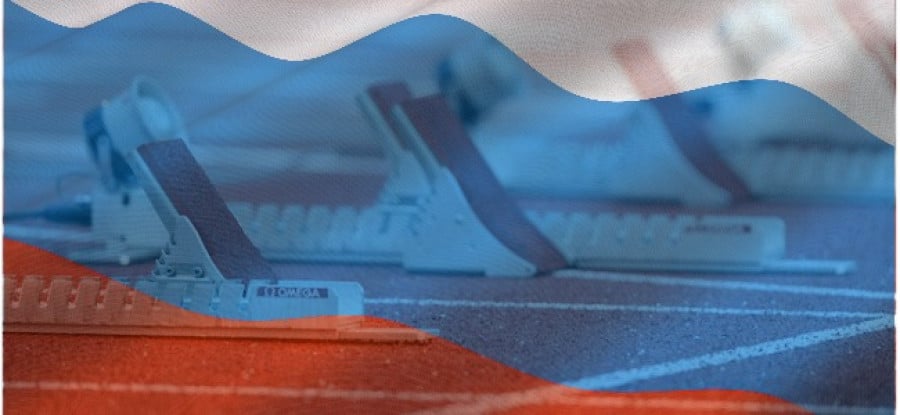What next for sport and the IAAF in the wake of Russia’s doping crisis?

In December 2014, a German TV documentary made some astonishing claims about systemic doping in Russian athletics.1 Based principally on evidence provided by a former Russian anti-doping official, the programme alleged that leading Russian athletics officials supplied banned substances in exchange for 5% of an athlete’s earnings. There were also allegations both of doping control officers colluding with athletes to falsify tests and attempting to blackmail athletes who had tested positive.
A subsequent investigation by the Sunday Times, based on an analysis of 12,000 blood tests taken from 5,000 athletes over the past decade, reinforced the view that Russia is the “epicentre” of blood doping in sport.2
Earlier this month, French prosecutors announced that the former President of the IAAF (the world governing body for athletics), Lamine Diack,3 is being investigated over allegations he took payments for deferring sanctions against Russian drugs cheats. Diack’s son and three others have also been charged with various alleged breaches of the IAAF’s code of ethics.
French prosecutors, now liaising with Interpol,4 were acting on information supplied by the World Anti-Doping Authority (WADA) who, in the wake of the German TV doping documentary, had established an independent commission to verify the accuracy of the programme’s allegations.
Extent of problems revealed by the Independent Commission Report
The Independent Commission Report (IRC)5 published on 9 November 2015, (WADA’s ICR on Russian Doping) has essentially concluded that the German investigation was accurate. In the immediate aftermath of this report, much media attention will focus on whether Russia should be temporarily suspended from the IAAF and how the current IAAF President, Seb Coe, might attempt to restore the credibility of the sport, less than ten months from the beginning of the 2016 Summer Olympic Games in Rio, at which athletics will be the centrepiece of the final week of action.
On the Russian “problem”,6 it must also be remembered that the allegations in the German TV documentary were not confined to athletics and referred to doping conspiracies in a host of endurance events and including “state-sponsored” collusion at a troika of Russian government funded agencies –the national anti-doping agency, the national athletics federation and the nation’s WADA-accredited anti-doping laboratory in Moscow and possibly in Lausanne.
Consequently, the IAAF’s problem becomes the world’s problem as doubt is cast on medals won by Russian participants not just at the 2012 Summer Olympics in London, but also at the 2013 World Athletics Championships (held in Moscow), the 2014 Winter Olympics (Sochi) and this year’s World Swimming Championship held in Kazan. Moreover, it is likely the FIFA will have to look again at who manages its on-site anti-doping programme for the 2018 FIFA World Cup in Russia.
To continue reading or watching login or register here
Already a member? Sign in
Get access to all of the expert analysis and commentary at LawInSport including articles, webinars, conference videos and podcast transcripts. Find out more here.
- Tags: 2013 World Athletics Championships Moscow | 2015 World Swimming Championship Kazan | 2018 FIFA World Cup Russia | Anti-Doping | Athletics | Brazil | Court of Arbitration for Sport (CAS) | Cycling | FIFA | Football | International Association of Athletics Federations (IAAF) | International Cycling Union (UCI) | INTERPOL | IOC | London 2012 | Olympic Games Rio de Janeiro 2016 | Russia | Sochi 2014 | United Kingdom (UK) | Winter Games | World Anti-Doping Agency (WADA) | World Anti-Doping Code (WADC)
Related Articles
- Prosecuting historic doping: Why the 2015 WADA Code’s new limitation period is an opportunity missed
- WADA receives Independent Commission’s Report into allegations of widespread doping in sport
- IOC Statement on WADA Independent Commission Report
- Canadian anti-doping efforts undermined by inconsistent enforcement of the standards
Written by
Jack Anderson
Jack Anderson is a Professor of Law at the University of Melbourne. He has published extensively on sports law, and most recently A Concise Introduction to Sports Law (Edward Elgar, 2024).
He is a member of World Athletics’ Disciplinary Tribunal and the integrity unit of the International Hockey Federation. He is an Ethics Commissioner for the International Tennis Federation and World Boxing. Jack is an arbitrator on Football Australia’s National Dispute Resolution Chamber, the National Sports Tribunal of Australia, and Sport Resolutions UK.




